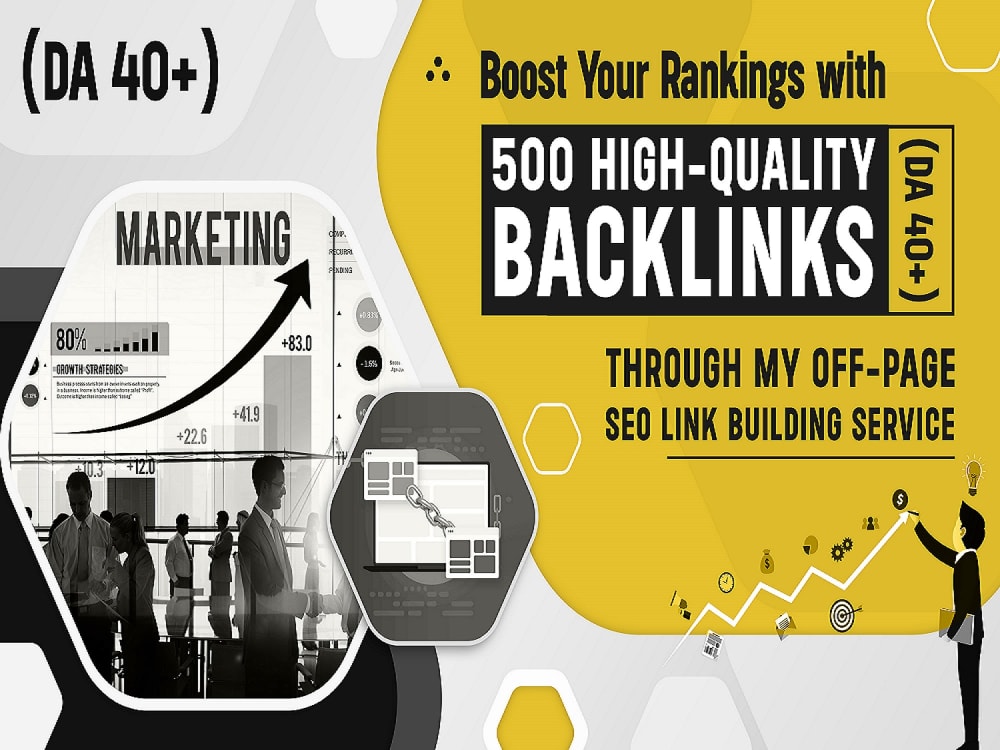The science of backlinking is the process of acquiring hyperlinks from other websites to your own. Backlinks are crucial for improving a website’s credibility and visibility in search engine results.
They act as “votes of confidence” and signal to search engines that your content is valuable and relevant. Backlinking plays a vital role in search engine optimization (SEO) by improving a website’s authority and trustworthiness. Through strategic link building, websites can enhance their organic search rankings and attract more organic traffic.
Understanding the science behind backlinking allows website owners to develop effective link-building strategies to boost their online presence. It involves creating high-quality content, engaging with other reputable websites, and utilizing different link-building tactics. As a crucial aspect of SEO, mastering the nuances of backlinking can significantly impact a website’s overall success and visibility.
Understanding Backlinks
What Are Backlinks?
Backlinks are incoming links to a webpage from another website. Essentially, they are a signal of trust and authority from one site to another. Search engines use backlinks to determine the relevance and authority of a website, thus affecting its ranking on search engine results pages (SERPs).
Importance Of Backlinks For Seo
Backlinks play a crucial role in SEO, as they serve as a vote of confidence for a website’s content. The more high-quality backlinks a website has, the more likely it is to rank higher in search engine results. They not only drive referral traffic but also indicate to search engines that the linked content is valuable and worth showing to users.
Different Types Of Backlinks
Backlinks can be categorized into different types, including:
- Natural links: These occur organically when other websites find your content valuable and link to it voluntarily.
- Manual link building: This involves actively seeking backlinks through outreach, partnerships, and guest posting.
- Editorial links: Links that are included within the content naturally, without any manipulation.
- No-follow links: These are links that do not pass on the SEO benefits to the linked site, as they contain the “rel=nofollow” attribute.
- Do-follow links: Unlike no-follow links, these links pass on the SEO benefits to the linked site.
How Do Search Engines View Backlinks?
Search engines view backlinks as a signal of a website’s credibility and relevance. Quality backlinks from authoritative websites are seen as positive votes, while spammy or low-quality backlinks can have a negative impact on a site’s ranking. Search engines also analyze the anchor text used in the backlinks to understand the context and relevance of the linked content.

Credit: www.nvish.com
Factors That Impact Backlink Quality
Relevance Of The Linking Site
The relevance of the linking site plays a crucial role in determining the quality of a backlink. Relevant backlinks from content that is related to your own niche or industry are considered more valuable by search engines. When a website within the same niche links to your site, it signals to search engines that your content is authoritative and relevant within that topic.
Domain Authority And Pagerank
Domain authority and PageRank are key metrics in assessing the quality of a backlink. Websites with high domain authority and PageRank typically provide more valuable backlinks. Domain authority is determined by a website’s overall quality and influence, while PageRank is a measure of the importance of a specific web page within a website. Backlinks from high authority websites and pages are more impactful in boosting search engine rankings.
Anchor Text Optimization
Anchor text optimization involves using relevant and descriptive anchor text for backlinks. Optimizing the anchor text with keywords that accurately reflect the content they are linking to can significantly enhance backlink quality and improve the relevance and ranking of the linked page. Relevant anchor text provides both search engines and users with context regarding the linked content.
Link Placement And Context
The placement and context of backlinks are important factors in determining backlink quality. Backlinks embedded within the body of a relevant, high-quality article are often more valuable than those placed in the footer or sidebar. Contextual backlinks integrated naturally within the content hold more weight in terms of SEO. Properly placed backlinks can enhance user experience and provide additional information and resources within the context of the content.
Effective Backlinking Strategies
Backlinking is a crucial aspect of any successful SEO strategy. It involves the process of obtaining high-quality links from other websites to your own, which can significantly improve your website’s visibility and rankings on search engines. However, not all backlinks are created equal. To achieve the best results, it is important to implement effective backlinking strategies that focus on guest posting on authoritative websites, building relationships for link building, creating high-quality content for link attraction, and using social media for backlinking.
Guest posting on authoritative websites is an excellent way to not only build quality backlinks but also establish yourself as an expert in your industry. By contributing valuable content on websites that are respected and trusted by both search engines and readers, you can gain exposure to a wider audience and increase your chances of attracting high-quality backlinks to your own site.
When guest posting, make sure to choose websites that are relevant to your niche and have a strong domain authority. Craft well-researched and informative articles that offer unique insights and solutions to the readers. By providing genuine value to the audience, you increase the likelihood of receiving backlinks from other webmasters or bloggers who find your content valuable.
Link building is not just about acquiring backlinks; it’s also about building relationships with other website owners. When you establish meaningful connections in your industry, you open doors to potential collaboration and link opportunities. A strong network of contacts can help you earn backlinks from reputable websites and influencers.
To build relationships for link building, engage in meaningful conversations with influencers in your niche. Share their content, leave thoughtful comments, and provide value whenever possible. Building genuine relationships based on mutual interests and organic engagement increases the likelihood of others willingly linking to your website, ultimately boosting your backlink profile.
The saying “content is king” holds true when it comes to backlinking. Creating high-quality, compelling content is an effective strategy to attract natural backlinks from other websites. Invest time and effort in producing valuable, informative, and engaging content that others would find worth referencing.
Consider conducting original research, sharing expert opinions, or providing in-depth guides that address common pain points or answer relevant questions within your industry. When your content is deemed authoritative and valuable, other websites and bloggers are more likely to reference your work and link back to it as a valuable resource.
Social media platforms play a vital role in backlinking as they provide a platform to engage with a wide audience and promote your content. By strategically sharing your articles, blog posts, and other valuable content on social media, you can increase the visibility of your work and encourage others to link back to it.
When sharing your content on social media, consider using hashtags, engaging with relevant communities and influencers, and encouraging social sharing. The more people that see and share your content, the greater the chances of attracting valuable backlinks from authoritative websites.
Implementing effective backlinking strategies is essential for improving your website’s visibility and rankings. By guest posting on authoritative websites, building relationships for link building, creating high-quality content, and leveraging the power of social media, you can attract valuable backlinks that will boost your SEO efforts and drive organic traffic to your website.
Backlink Monitoring And Analysis
Backlink monitoring and analysis are crucial factors in any successful SEO strategy. By keeping a close eye on your backlinks, you can gain valuable insights into their quality, value, and potential impact on your website’s performance. In this section, we will explore the importance of monitoring backlinks, the tools available for tracking and analyzing them, evaluating their value and quality, as well as identifying and addressing toxic backlinks.
Importance Of Monitoring Backlinks
Monitoring backlinks is essential for several reasons. Firstly, it allows you to understand how your website is connected to other websites on the internet. Backlinks are like votes of confidence from other sites, indicating that your content is relevant and trustworthy. By monitoring your backlinks, you can ensure that these votes are coming from authoritative and reliable sources.
Secondly, monitoring backlinks helps you detect any negative SEO attempts or harmful practices aimed at your website. Unwanted or toxic backlinks can negatively impact your search engine rankings and even lead to penalties from search engines. By actively monitoring your backlinks, you can identify and address any toxic links, ensuring they do not harm your website’s reputation.
Tools For Tracking And Analyzing Backlinks
Thankfully, there are various powerful tools available that can simplify the process of tracking and analyzing backlinks. These tools provide comprehensive reports on the number of backlinks, their source websites, anchor text used, and other useful metrics.
| Tool Name | Key Features |
|---|---|
| Ahrefs | – Detailed backlink analysis – Competitor research – Backlink monitoring – Toxic link detection |
| Moz | – Backlink tracking – Quality and spam score analysis – Competitor research – Link building opportunities |
| SEMRush | – Backlink analysis – Competitor research – Toxic link detection – Link building opportunities |
Evaluating The Value And Quality Of Backlinks
When it comes to backlinks, not all are created equal. Some backlinks hold more value and influence than others. It’s vital to evaluate the value and quality of your backlinks to ensure they contribute positively to your overall SEO efforts.
One way to assess backlink quality is by considering the authority and relevance of the linking website. Backlinks from highly authoritative websites within your industry are generally more valuable. Additionally, evaluating the anchor text used in backlinks can provide insights into the relevance and context of the link.
Identifying And Addressing Toxic Backlinks
Toxic backlinks refer to those coming from spammy, low-quality, or irrelevant websites. These backlinks can harm your website’s SEO performance and reputation. It’s crucial to identify and address toxic backlinks promptly.
Tools like Ahrefs and Moz mentioned earlier can help detect toxic backlinks by providing spam scores and various other metrics. Once identified, you can take necessary actions such as disavowing these links through Google’s Disavow tool or reaching out to webmasters to request their removal.
Successful Backlink Building Case Studies
The Science Of Backlinking is a fascinating subject that can significantly impact the success of any website’s SEO strategy. While acquiring backlinks may seem straightforward, there is actually a science behind it. Successful Backlink Building Case Studies provide valuable insights into real-life examples of how companies have strategically utilized backlinks to increase organic traffic, improve website rankings, and enhance their online presence.
Case Study 1: How Company X Increased Their Organic Traffic Through Strategic Backlinking
Company X, an e-commerce business specializing in outdoor gear, faced fierce competition in their industry. To gain a competitive edge, they focused on implementing a comprehensive backlinking strategy.
Utilizing various link building tactics, such as guest blogging, influencer partnerships, and resource link building, Company X successfully secured high-quality backlinks from reputable websites related to outdoor activities and travel. The result? A significant increase in organic traffic to their website.
The strategic placement of these backlinks across authoritative websites in their niche led to improved visibility, increased brand recognition, and ultimately, higher organic search rankings. This case study exemplifies the power of well-planned backlinking efforts in driving targeted traffic to a website.
Case Study 2: The Impact Of Backlinks On Website Ranking – Analysis Of A Real-life Example
Understanding the direct impact of backlinks on website ranking is essential for any SEO practitioner. Let’s analyze a real-life example to illustrate this point.
Website A and Website B are two similar websites within the same industry, offering comparable products and services. However, Website A has a robust backlink profile, while Website B has neglected this aspect of SEO.
Despite having similar on-page optimization and content quality, Website A consistently outperforms Website B in search engine rankings. This disparity can be directly attributed to the presence of high-quality backlinks pointing to Website A. These backlinks signal to search engines that Website A is a trusted and authoritative source in its industry, resulting in higher rankings for relevant search queries.
This case study emphasizes the crucial role of backlinks in influencing website rankings and the importance of incorporating effective backlink building strategies into your overall SEO approach.
Case Study 3: Creative Approaches To Building High-quality Backlinks
Building high-quality backlinks requires ingenuity and creative thinking. Let’s explore a case study showcasing a unique approach to acquiring valuable backlinks.
Company Y, a startup in the fashion industry, sought innovative ways to establish their brand presence and secure authoritative backlinks. Instead of relying solely on typical link building techniques, they focused on creating compelling and shareable content.
By developing visually-stunning infographics containing valuable industry insights, Company Y was able to pique the interest of reputable fashion bloggers and influencers. These influencers naturally linked to Company Y’s infographics in their blog posts and social media posts, resulting in a surge of high-quality backlinks.
This case study highlights the importance of thinking outside the box and employing creative approaches to backlink building. By producing compelling and shareable content, businesses can attract influential individuals within their niche, ultimately generating valuable backlinks and enhancing their online presence.
Frequently Asked Questions For The Science Of Backlinking
What Is Backlinking And Why Is It Important For Seo?
Backlinking is the process of obtaining links from other websites to your own. It is important for SEO because search engines consider backlinks as a vote of confidence for your website’s authority and relevance. High-quality backlinks can boost your search rankings and increase organic traffic.
How Does Backlinking Affect Search Engine Rankings?
Backlinking plays a crucial role in search engine rankings. When a search engine sees that your website has earned high-quality backlinks from reputable sources, it considers your site trustworthy and relevant. This can result in higher rankings and increased visibility in search engine results pages (SERPs).
What Are Some Effective Strategies For Building Backlinks?
To build effective backlinks, you can focus on strategies such as guest blogging, creating valuable content that others want to link to, reaching out to influencers in your industry, and optimizing your presence on social media platforms. It’s important to prioritize quality over quantity and ensure that the backlinks come from authoritative and relevant sources.
How Do Backlinks Impact Organic Traffic?
Backlinks can have a significant impact on organic traffic. When your website has high-quality backlinks, search engines view it as a trusted source and are more likely to display it in relevant search results. As a result, your website can attract more organic traffic from users who are actively searching for information or products related to your industry.
Conclusion
In a nutshell, backlinking is a crucial aspect of SEO that can significantly impact your website’s ranking. By understanding the science behind backlinks, you can craft a solid strategy to attract high-quality links from reputable sources. Remember, it’s not just about the quantity, but the quality of backlinks that matter.
So, make sure to focus on creating valuable and relevant content and fostering genuine relationships with other websites. By doing so, you can strengthen your website’s authority and ultimately improve its visibility in search engine results.




